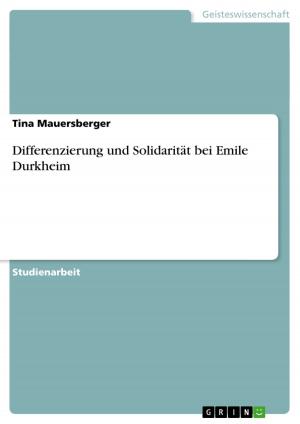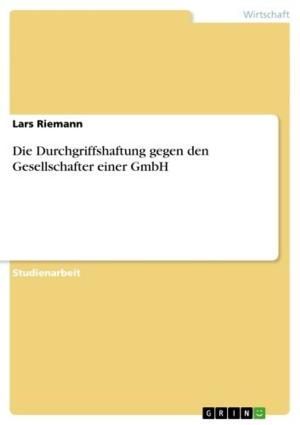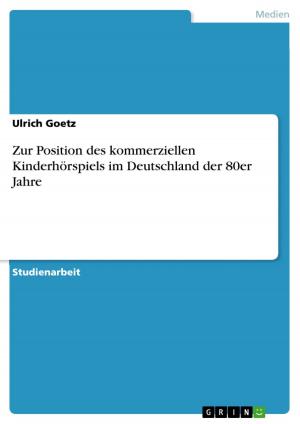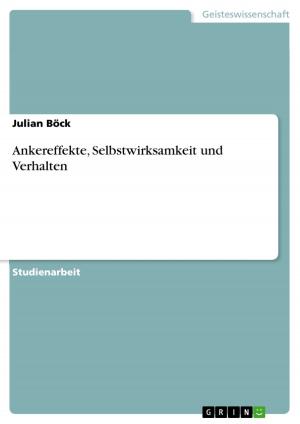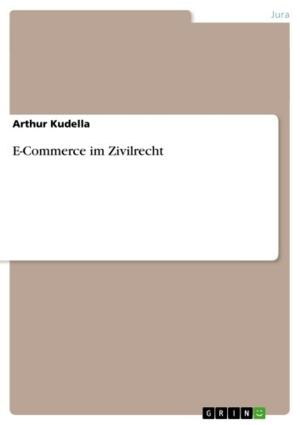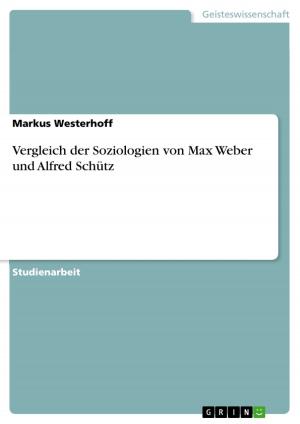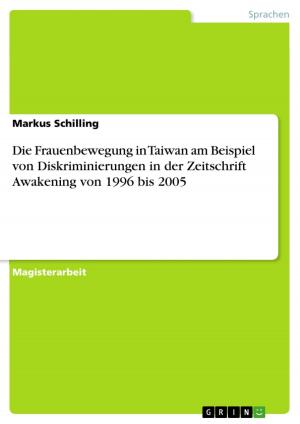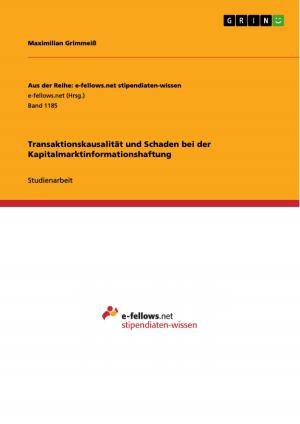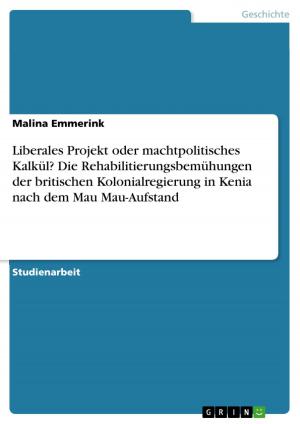An analysis about Anglicisms collected from four bakeries in the innercity of Greifswald
Nonfiction, Entertainment, Drama, Anthologies| Author: | Julia Diedrich | ISBN: | 9783656134787 |
| Publisher: | GRIN Verlag | Publication: | February 17, 2012 |
| Imprint: | GRIN Verlag | Language: | English |
| Author: | Julia Diedrich |
| ISBN: | 9783656134787 |
| Publisher: | GRIN Verlag |
| Publication: | February 17, 2012 |
| Imprint: | GRIN Verlag |
| Language: | English |
Seminar paper from the year 2006 in the subject English Language and Literature Studies - Linguistics, grade: 2,5, Ernst Moritz Arndt University of Greifswald, course: English as a World Language, language: English, abstract: Since the 1960´s the increase of anglicisms in the German language can be recognised and since the 1990´s it strengthened even more. The reasons for that are obvious: It is the economical, technological, military and cultural domination of the United States and Anglo-Saxon speech communities all together. This domination is very remarkable in the fields of media, technology and the film industry. That is why anglicisms are found especially in those fields which bring or brought technological innovations into everyday life: the information technology (computer), the service area (autoleasing), the leisure industry (Trendsportarten) and the culture of the youth (Popmusik) whose taste of music and way-of-life is coined predominant by English-speaking areas. Until now there is a large number of papers and books written about the English influence on the German language, for example Broder Carstensen, Werner Betz, Manfred Görlach, René Appel and Pieter Muysken, to name just a view. In my paper I don´t want to write about anglicisms of the fields mentioned above. The task of this written assignment was to analyse in what respect anglicisms appear in Greifswald´s bakeries: For this I will, first of all, define the term anglicism from a linguistic perspective, and I will give an overview of the processes of adopting words with all their distinctive and characteristic features in their formation. For this I will go into terms like loanword and foreign word. This theoretical framework will help me to analyse afterwards the practical examples which I collected from four bakeries in the inner-city of Greifswald (namely: Backfactory, De Mäklenbörger, Marckwardt and Stadtbäckerei Junge).
Seminar paper from the year 2006 in the subject English Language and Literature Studies - Linguistics, grade: 2,5, Ernst Moritz Arndt University of Greifswald, course: English as a World Language, language: English, abstract: Since the 1960´s the increase of anglicisms in the German language can be recognised and since the 1990´s it strengthened even more. The reasons for that are obvious: It is the economical, technological, military and cultural domination of the United States and Anglo-Saxon speech communities all together. This domination is very remarkable in the fields of media, technology and the film industry. That is why anglicisms are found especially in those fields which bring or brought technological innovations into everyday life: the information technology (computer), the service area (autoleasing), the leisure industry (Trendsportarten) and the culture of the youth (Popmusik) whose taste of music and way-of-life is coined predominant by English-speaking areas. Until now there is a large number of papers and books written about the English influence on the German language, for example Broder Carstensen, Werner Betz, Manfred Görlach, René Appel and Pieter Muysken, to name just a view. In my paper I don´t want to write about anglicisms of the fields mentioned above. The task of this written assignment was to analyse in what respect anglicisms appear in Greifswald´s bakeries: For this I will, first of all, define the term anglicism from a linguistic perspective, and I will give an overview of the processes of adopting words with all their distinctive and characteristic features in their formation. For this I will go into terms like loanword and foreign word. This theoretical framework will help me to analyse afterwards the practical examples which I collected from four bakeries in the inner-city of Greifswald (namely: Backfactory, De Mäklenbörger, Marckwardt and Stadtbäckerei Junge).


